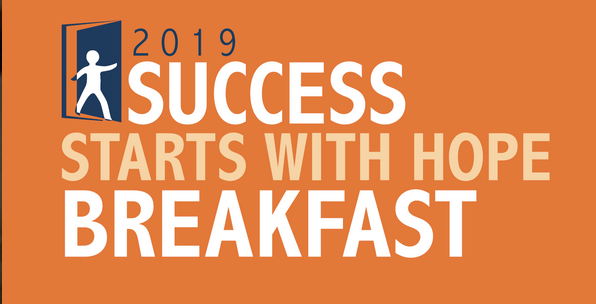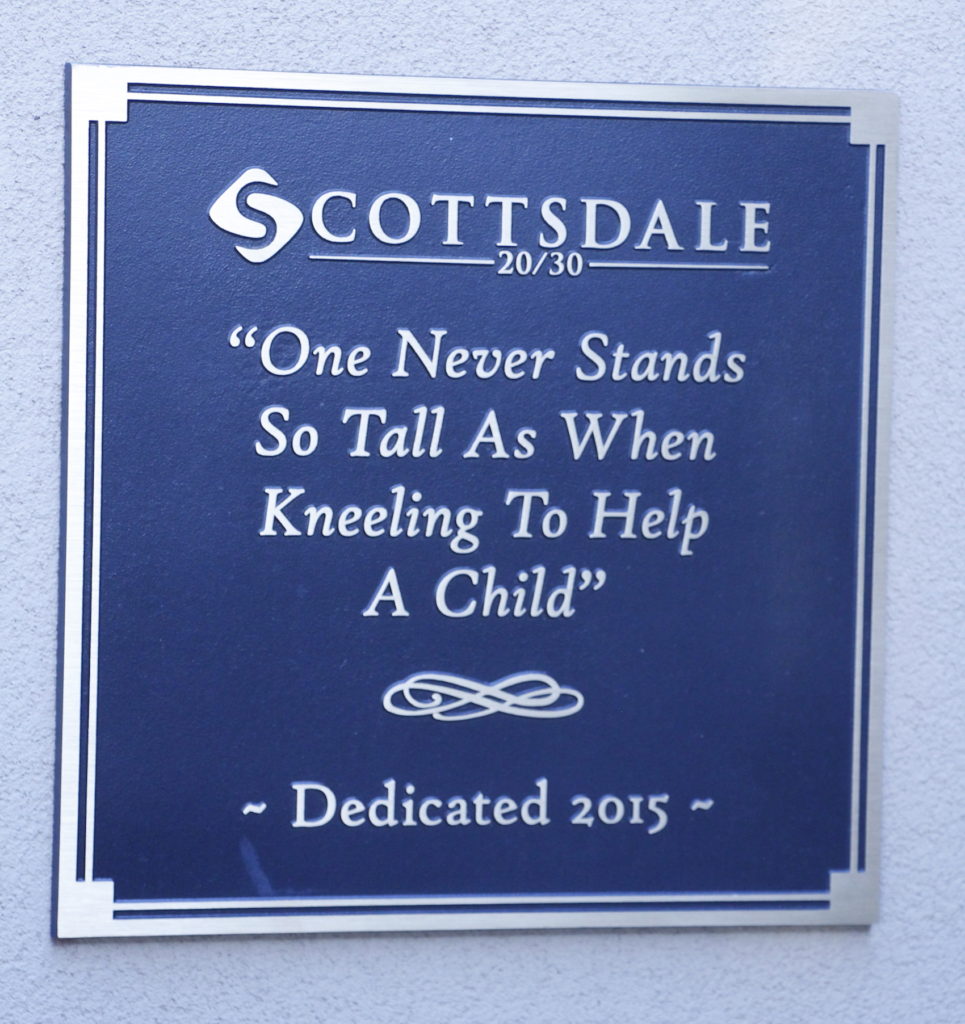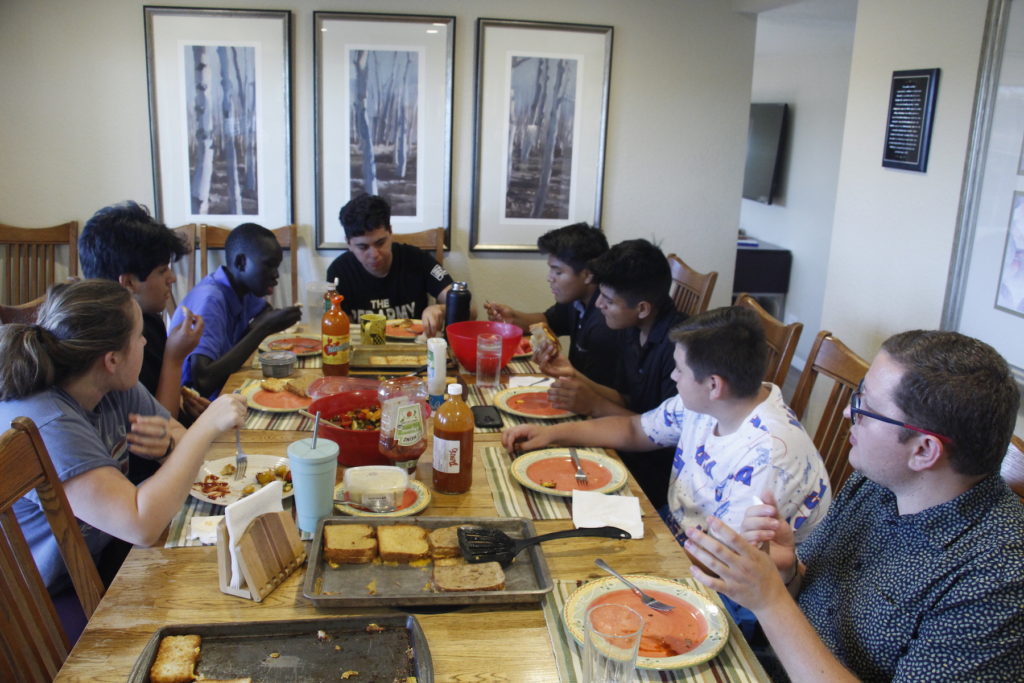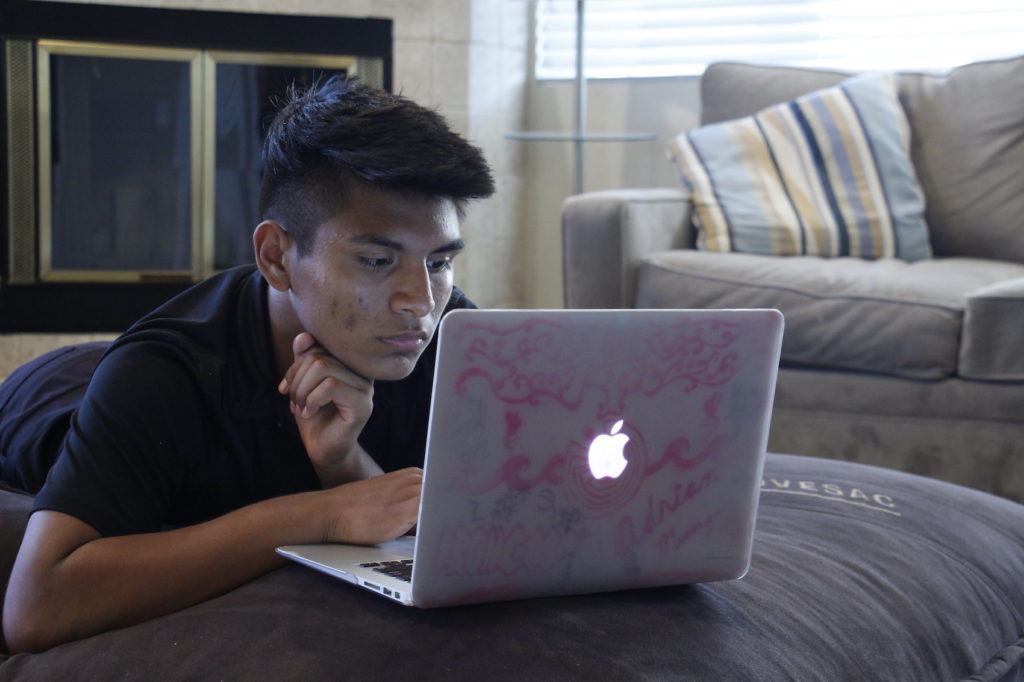
Ask any parent who had at least one child in Catholic school and he or she will know exactly how many years of private education they’ve financed.
It’s likely not many, if any of them, will come close to 30. That’s how many years donors have supported tuition and living expenses for an ever-revolving household of teenaged boys and — since 1998 — another for girls as the scholars attend Phoenix-area Catholic high schools. And the 16 total youth — rightly referred to as scholars — who can live in the houses each year are only midway through their career as a Boys Hope Girls Hope of Arizona scholar.
The organization is one of 16 U.S. and Latin American independent affiliates that helps academically motivated middle and high school students soar above their disadvantaged backgrounds and become successful in whichever grade they enter the program until high school graduation. Concretely that means every Boys Hope Girls Hope affiliate pays the junior high and high school tuition for each of their scholars. The organization supports them through college too, covering what merit-based and other scholarships can’t.
That’s all on top of similar comprehensive services Boys Hope Girls Hope of Arizona offers scholars in its community-based program since its creation 15 years ago. That component currently serves 44 scholars. All told, the organization supports roughly 90 scholars a year.
But they require the proverbial “village” to do it. Julie Hancock became part of that village four years ago after volunteering to remodel the girls house.
“The girls walked right up, looked us in the eye, shook our hands” and Hancock was hooked. She is now on the board of directors with her husband and brings their grandsons along when they make or deliver dinner to the scholars once a month.
“I’ve always been impressed that they seem so genuine and articulate. That they have dreams and goals,” Hancock said of the scholars. Those are qualities she couldn’t immediately identify in other youth she has encountered.
Hancock has made it a personal goal to keep the scholars connected in college and beyond and has been known to meet with parents of any college kid who might be struggling. There is a lot involved with the Boys Hope Girls Hope of Arizona life and outreach, but Hancock has no trouble pinpointing her favorite aspect.
Success Starts With Hope Breakfast
- 7:30-8:30 a.m. (registration begins at 7 a.m.)
- May 10
- Arizona Biltmore, 2400 E. Missouri Avenue
- Free, but RSVP required
“The most exciting for me is at the breakfast when they reveal where they go to college,” she said. The 2019 Success Starts with Hope Breakfast is May 10.
Hancock remembers one scholar who took three buses to get to school before he moved into the boys house his junior year. His grades improved after that. For other scholars like Jason Merrill, Boys Hope Girls Hope of Arizona allowed him not just to be a better student, but a student period. Family dynamics at the time — more than 20 years ago — had Merrill’s mom wanting him to quit high school to support the family.

“BHGH provided structure and expectations for the boys that helped us develop good work habits, good study habits, and to help us excel academically. The strong/positive environment provided by BHGH helped me to get good grades and continue to prepare for college,” Merrill told The Catholic Sun by email.
He went on to major in mechanical engineering at Dartmouth College. Merrill worked as an engineer for a few years and then entered business school. He now works in the investment management industry.
And he’s personally invested in sharing some of the same principals he learned in the boys home with his own teenagers:
- do the best you can to complete your work before you play
- take responsibility for the work that is given to you and do it without having to be reminded or pressured
- take time to help those around you if you are in a position to do so
- show respect to the adults that care for you
“That’s the long-term impact of Boys Hhope
Girls Hope: hearing their success and the ripple effect of what a college
education has done for their family, for the community and this organization as
a whole,” Hancock said.

Gil Torres Gomez, a junior at Brophy, has seen his sense of independence grow and his preparedness for college life since moving into the boys house last year. He came after realizing family financial constraints if he stayed at Brophy and expressed concerns to the financial aid office about the quality of education in his neighborhood schools, especially in terms of college preparation.
His proximity to school helps tremendously with campus life. Torres Gomez plays saxophone in the wind ensemble, plans to join jazz band next year and volunteers weekly with music outreach at senior homes and through United Sound, which helps those with a mental disability play an instrument.
“Hopefully I can combine something with music and psychology to do something with music therapy,” Torres Gomez said. That or forensic science, said the low-key student who also co-founded Dead Philosophers Society, is part of Brophy Culture Project and works at St. Francis Xavier’s after care weekly.

Freshman Adrian Munguia appreciates a lot about the boys house, the required group dinners among them. Coming from a home with a sibling, mom and four other extended family members, he savors the opportunity to get to know one another.
Munguia said most of elementary school was too easy for him, and he has learned strategies to adjust to the new academic rigor of high school. Despite being just a freshman, he is already envisioning college: Arizona State University for engineering — the sky’s the limit on his specialty — or perhaps the Honors College at ASU then Yale or Harvard if he goes the aerospace engineer route.
“Living here it’s definitely more nurturing and survivable than a lot of environments the boys are coming from,” Munguia said.





